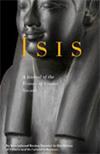The Limits of Linearity: Recasting Histories of Epidemics in the Global South
IF 0.9
2区 哲学
Q2 HISTORY & PHILOSOPHY OF SCIENCE
引用次数: 0
Abstract
Writing about the history and politics of epidemics and pandemics requires stepping into a historiography that is expansive, transnational, and slotted into specific historical periods. This essay considers the main debates in this expansive historiography and highlights the strengths and limitations of dominant historiographical approaches to the study of epidemics and pandemics. This essay also interrogates the framing of three thematic periods, or categories, commonly identified by historians and social scientists in analyses of epidemics and pandemics: categories of “colonial health,” “international health,” and “global health.” As this essay underscores, scholarship often analyzes epidemics and pandemics through overlapping and complex historical temporalities involving colonization, decolonization, and globalization. However, this approach is often constrained by the limitations of existing archives and the overwhelming focus of published scholarship on dominant institutions, scientific and political figures, and specific disease outbreaks that are commonly associated with categories of “colonial health,” “international health,” and “global health” from the late nineteenth to the present. As a result, scholarship may include linear narratives that flatten or generalize the legacies of epidemics and pandemics. The links between pathogens and pathologies are not linear, however, and colonial structures of power, disease tropes, and surveillance doctrines often persist across time and space. This essay ultimately seeks to challenge and complicate these dominant framings and categories from within. This approach highlights the connectedness—and complex continuities and discontinuities—in the political, economic, social, and scientific perceptions of and approaches to epidemic and pandemic risks.线性的极限:重铸全球南方流行病的历史
本文章由计算机程序翻译,如有差异,请以英文原文为准。
求助全文
约1分钟内获得全文
求助全文
来源期刊

Isis
管理科学-科学史与科学哲学
CiteScore
1.00
自引率
16.70%
发文量
150
审稿时长
>12 weeks
期刊介绍:
Since its inception in 1912, Isis has featured scholarly articles, research notes, and commentary on the history of science, medicine, and technology and their cultural influences. Review essays and book reviews on new contributions to the discipline are also included. An official publication of the History of Science Society, Isis is the oldest English-language journal in the field.
The Press, along with the journal’s editorial office in Starkville, MS, would like to acknowledge the following supporters: Mississippi State University, its College of Arts and Sciences and History Department, and the Consortium for the History of Science, Technology, and Medicine.
 求助内容:
求助内容: 应助结果提醒方式:
应助结果提醒方式:


